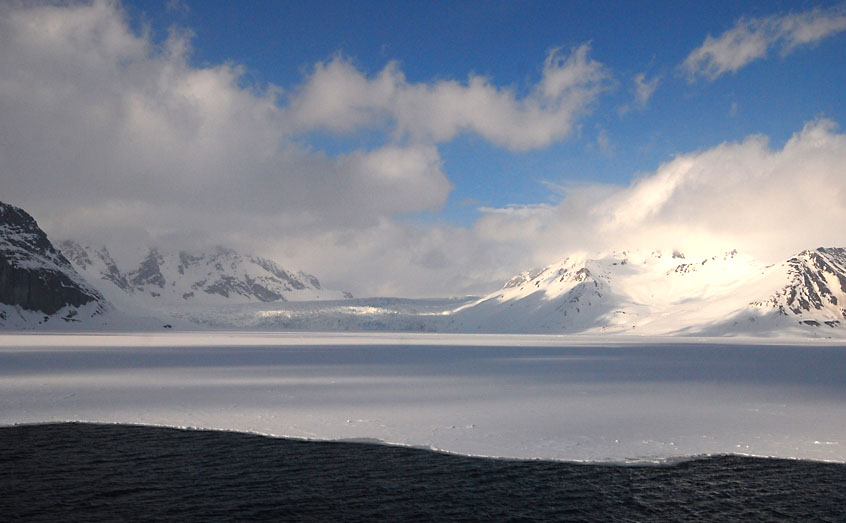SAMS news room
Committee calls for greater Arctic funding

The UK’s support for exploitation of oil and gas reserves in the Arctic is incompatible with its international commitments, including the 2015 Paris Climate Change Agreement and the UN Sustainable Development Goals (SDGs), says the Environmental Audit Committee.
In a wide-ranging new report published today following an eight-month inquiry, MPs conclude that the Government should reconsider its encouragement to UK businesses to explore oil and gas opportunities in the Arctic.
SAMS science fed into the report, which commends that ministers should acknowledge incompatibility with climate agreements and set out plans to press members of the Arctic Council to adopt a similar approach.
Chair of the Environmental Audit Committee, Mary Creagh MP, said: “The Arctic is changing rapidly and warming twice as fast as the rest of the planet. This brings potentially catastrophic consequences for the global climate as well as commercial opportunities and risks.
“If there is anywhere in the world that the principles of sustainable development should apply, it is the Arctic. The Government should start by acknowledging the incompatibility of its support for oil and gas exploitation with its climate change commitments. It can do this by setting targets in line with the Sustainable Development Goals.
“With interest in the Arctic from countries as far away as China and Singapore, the UK must ensure it remains a key player in its protection. We’re calling for increased funding for research and strengthening of UK emissions targets. Failing to act now would be a dereliction of a global duty.”
Today’s report contains several conclusions and recommendations. Among these are calls to significantly increase funding for Arctic research.
The Arctic is undergoing profound environmental change from warming surface and ocean temperatures. Multiyear sea ice has been reducing for decades, and melting has accelerated since the early 2000s. It is now at its lowest level since records began and the Arctic Ocean may be ice free in the summer as soon as the 2050s, unless emissions are reduced. The acidification and Atlantification of the Arctic Ocean are causes for significant concern as they threaten marine wildlife and global climate patterns.
Additionally, one trillion plastic particles frozen into Arctic sea ice could be released into the ocean through accelerated melting.
The report acknowledges Scotland’s ‘shared economic, social and cultural links’ with other Arctic nations, quoting evidence from Prof Mark Inall of SAMS, who said there was an opportunity for a sharing of expertise.
Prof Finlo Cottier, another Arctic researcher at SAMS said: “It is important to understand that the Arctic is not a remote and isolated place that has little relevance to us. Weather, shipping, fisheries, are all areas that are linked strongly to changes in the Arctic.
“Today’s report from the Environmental Audit Committee reiterates the importance of the UK’s role in Arctic activity. Scottish institutes, SAMS included, make significant contributions to research and education in the Arctic regions and we are contributing to the development of an Arctic Strategy for Scotland.”
To read the full report, or a summary of the findings, visit: https://www.parliament.uk/business/committees/committees-a-z/commons-select/environmental-audit-committee/news-parliament-2017/changing-arctic-report-published-17-19/
